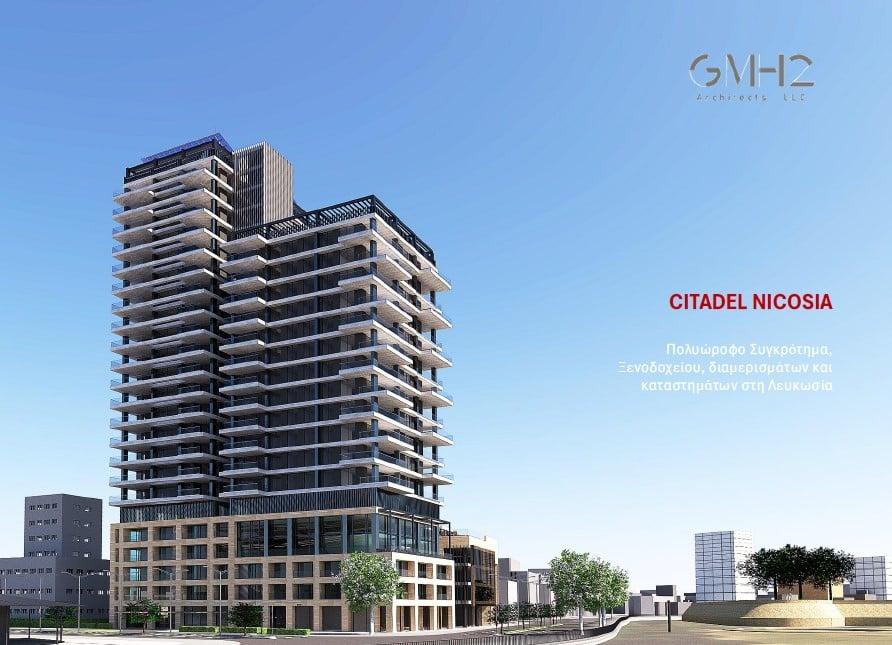The Department of Antiquities has announced that it no longer intends to authorise the construction of high-rise buildings near the Famagusta Gate in Nicosia.
This was the reason for the refusal to grant planning permission to the Citadel project.
Recently, its developers expressed their dissatisfaction with this decision, pointing out that it took years to adapt the project to the government's requirements. As a result, despite all the changes that have been made, the authorities have refused to grant a licence, while at the same time refusing to engage in constructive dialogue.
It is worth noting that this conflict raises an important question: how did a plot of land close to an important Venetian building become available for commercial development? Is the cancellation of the project really a demonstration of commitment to the preservation of historical heritage, or just another bureaucratic obstacle to the development of the city?
Recall that the Famagusta Gate is part of the Venetian fortifications of Nicosia, built by the Italian engineer Giulio Savorgiano between 1567 and 1570. Originally designed to protect the city from the new military threats of the time, these walls remain a symbol of the historical past of the capital of Cyprus. Over the centuries they have been used for various purposes and today they serve as a cultural centre and historical monument, making their preservation of paramount importance.

On Thursday 13 March, the owner of the Citadel project, Vahid Chammas, held a press conference to express his disappointment at the delays. He stressed that the implementation of the project could not only transform the abandoned part of the city, but also give it a new life without compromising the historical integrity of the area.
We have strictly followed all the guidelines and revised the project several times, but we are facing unreasonable obstacles. How can we allow the degradation of the urban environment, but at the same time prevent investors who want to improve it? - Chammas remarked.
Incidentally, Nerofarm Ltd acquired a plot of land for the construction of the Citadel complex in 2017 after receiving preliminary recommendations from the municipal authorities. Since then, the project has been revised several times in order to meet the requirements of the authorities. Currently, it envisages the construction of a 22-storey complex comprising residential apartments, commercial space and a 58-room hotel. The developers claim that the project meets all urban planning standards and will benefit the city's infrastructure.
Project architect George Mahlouzarides recalled that the Nicosia municipality approved the project in 2017 and the planning authority confirmed its validity in 2018. In 2020, international heritage experts were brought in to ensure that the project met international standards. However, despite the approval of the Fire Department, the Environment Department and the Electricity Authority, it was the Department of Antiquities that refused to even discuss the project.
We have managed to consult with all the relevant authorities except the one that has the final say. The complete lack of communication is surprising and perplexing," said Mahlouzarides.
In 2023, the Nicosia City Council voted unanimously to support the project, reaffirming its importance for the development of the capital. However, the Department of Antiquities continues to insist that the construction could affect the visual and historical integrity of the Venetian walls. The director of the department, Yorgos Georgiou, said that international agreements on the protection of cultural heritage oblige authorities to protect such sites, including their surroundings.
The Cyprus Archaeological Association (CAA) also expressed concern, saying that the construction of high-rise buildings near historical monuments would set a dangerous precedent. According to them, the development of the urban environment should be carried out with the preservation of Nicosia's identity in mind, and overdevelopment could destroy its unique appearance.
Environmental engineer Panikos Nikolaides, who carried out an environmental impact assessment of the project, noted that high-rise buildings had been built in the area before, but they did not provoke such a harsh reaction from the authorities. And civil engineer Theodoros Hadjigeorgiou added that the Antiquities Department's refusal to consult international experts casts doubt on the validity of its position. Lawyer Doros Lykourgos warned that if the issue is not resolved soon, the project's developer will be forced to go to court to claim compensation for administrative delays.
We intend to take all possible steps to achieve a fair solution, whether it is obtaining a building permit or compensation for damages caused by long bureaucratic delays,' Lykourgos stressed.
Commenting on the situation, Vadid Chammas expressed his bewilderment.
I have lived in Cyprus since the 1970s and have actively invested in the island's economy. This project has been designed with the needs of the city in mind and has received local support, yet we are facing inexplicable obstacles,' Chammas said.
Ultimately, the controversy goes beyond a single development and raises a global question: how does Cyprus plan to balance historic preservation and economic development? While some fear that chaotic development could erase Nicosia's historic image, others believe that excessive bureaucracy is hindering the necessary transformation of the urban environment.
Meanwhile, the fate of the Citadel project remains in doubt and the confrontation between its developers and the authorities continues, reflecting the wider problem of how business and government interact in urban planning.
